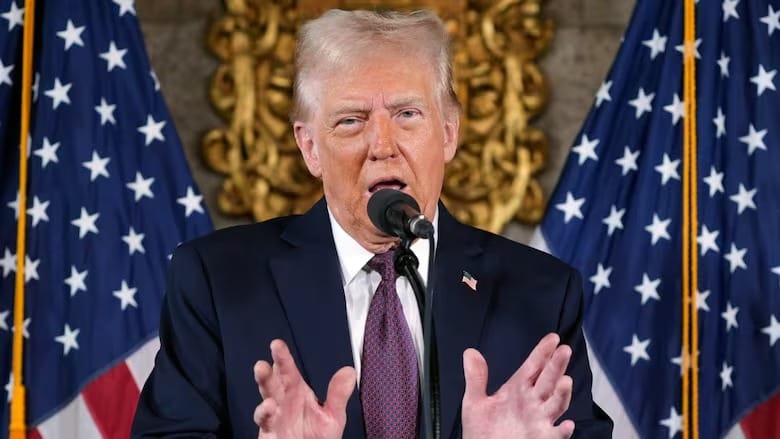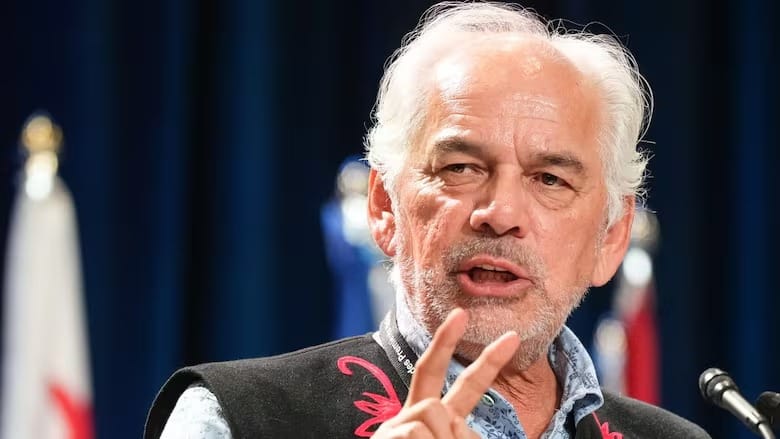Meta is ending fact-checking in the U.S. Could that affect the vote in Canada?
Restrictions for some incendiary topics being lifted on Facebook, Instagram globally

Social media platform Meta has announced significant changes to its content policies, including phasing out third-party fact-checking and easing restrictions on certain controversial topics. Experts warn these changes could create new vulnerabilities for interference in Canada’s upcoming federal election and the Liberal leadership race to replace Justin Trudeau.
Meta’s shift to replace fact-checking with a "community notes" system will first be introduced in the United States, but the global easing of restrictions on incendiary topics has raised concerns. Analysts suggest the changes may allow misinformation and foreign interference to infiltrate Canadian online spaces more easily.
Philip Mai, co-director of the Social Media Lab at Toronto Metropolitan University, criticized the move, saying, "With a leadership election looming for the Liberals and a federal election on the horizon, this news could not come at a worse time for Canada. Without trained moderators to combat harmful content, Facebook and Instagram will become an even bigger breeding ground for false narratives, conspiracy theories, and divisive rhetoric."
Aengus Bridgman, director of the Media Ecosystem Observatory, shared similar concerns, noting that Meta’s decision reflects a growing trend among social media platforms to reduce content moderation under the guise of promoting free speech. "Platforms are less and less likely to take any degree of responsibility for the content spread on their sites," Bridgman observed. He also raised questions about whether Meta’s platforms would adequately monitor and remove foreign interference.
The Canadian government, however, is committed to protecting the integrity of its elections. Minister of Democratic Institutions Ruby Sahota pointed out that social media companies, including Facebook, had previously agreed to a voluntary declaration aimed at safeguarding elections. Sahota expressed expectations that platforms will adhere to this agreement in the upcoming election and pledged ongoing discussions with these companies. "The veracity of information is important in the democratic system, and therefore we will continue to monitor the situation," she stated.
Meta’s changes extend to ending its practice of downplaying political posts, lifting restrictions on topics like immigration and gender identity, and focusing its automated systems on illegal content, including terrorism and fraud. While the company claims there are no immediate changes to fact-checking in Canada, its spokesperson confirmed that discourse restriction updates are being applied globally.
Concerns about the implications of these changes are heightened by recent experiences. MP Charlie Angus highlighted an increase in toxic and violent material on Facebook, including receiving an AI-generated death threat. He warned of potential misuse of Meta’s platforms by "digital mercenaries" to influence elections, as seen in past instances like the Cambridge Analytica scandal and Brexit. "This decision signals it is definitely going to be game on for disinformation and the extremist crowd," Angus remarked.
Bridgman noted that the effectiveness of Meta’s proposed community notes system depends on its implementation speed, cautioning that it might act too slowly to prevent harmful content from spreading. He added that bringing back political posts to prominence could have a positive impact by increasing Canadians’ exposure to political messaging and public discourse.
Philip Mai attributed Meta’s decision to political pressures, stating, "This decision is a complete surrender to pressures from Trump and the MAGA movement. By abandoning years of trust and safety initiatives, Meta is rolling back eight years of progress in creating a safer and more accountable online environment."
With the potential implications for Canadian elections and public discourse, Meta’s policy changes are being closely watched by experts and policymakers alike.





